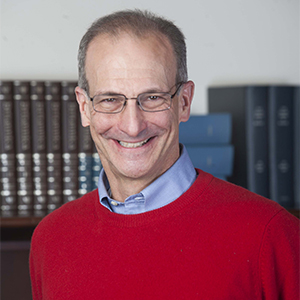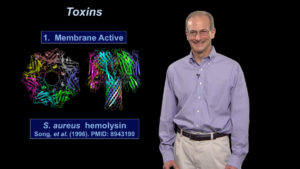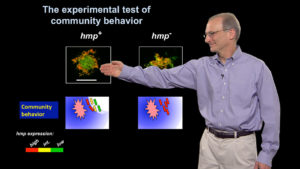Ralph Isberg is professor of molecular biology and microbiology at Tufts University School of Medicine and an Investigator of the Howard Hughes Medical Institute. Isberg’s lab strives to understand how pathogenic bacteria enter and grow within human cells, how they spread within the body and how they evade the immune system. The lab uses genetic and biochemical approaches to study these questions in the pathogenic bacteria Yersinia pseudotuberculosis and Legionella pneumophila.
Isberg received his AB in chemistry from Oberlin College and his PhD in microbiology and molecular genetics from Harvard University. He was a post-doctoral fellow at Stanford University with Stanley Falkow when he identified the first gene shown to be responsible for the entry of bacteria into host cells. Isberg’s contributions to microbiology have been recognized by election to the American Academy of Microbiology and the U.S National Academy of Sciences.






